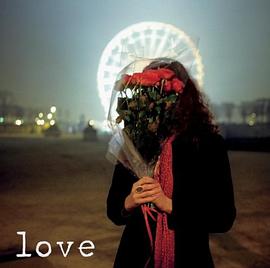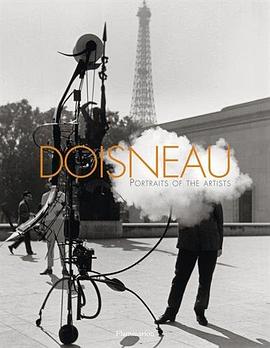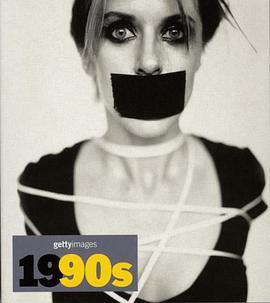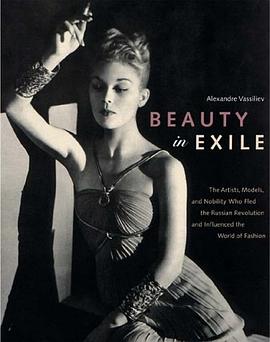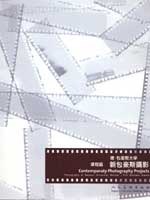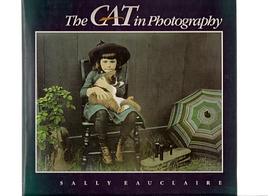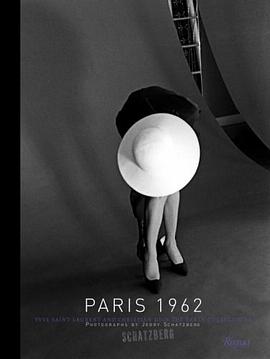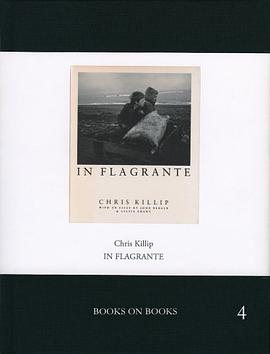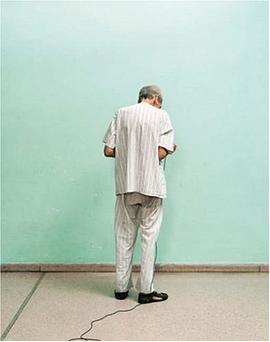
Ghetto pdf epub mobi txt 电子书 下载 2026
- photography
- 摄影/画册/艺术
- 摄影
- 摄影集
- 包益民
- foto
- Adam_Broomberg&Oliver_Chanarin
- 贫民窟
- 城市生活
- 社会问题
- 边缘群体
- 底层社会
- 犯罪
- 贫困
- 种族
- 文化冲突
- 美国社会

具体描述
Ghetto
Photographs by Adam Broomberg and Oliver Chanarin
Trolley’s latest publication, Ghetto, sets out to document 12 obscure communities on the margins of society. Photographers Adam Broomberg and Oliver Chanarin, creative directors at Colours, Benetton’s documentary magazine between 2000 and 2002, explore worlds beyond the range of current reportage, their project taking them from Lukole Refugee Camp in Tanzania to a forest in Patagonia.
Life in each destination is recorded in photographs, recollections and anecdotes from the authors, contextual information and first hand observations from the inhabitants themselves. In many of these artificially constructed communities, society’s traditional structures are absent or eroded. Inhabitants fill the void with routine, ritual and new relationships to reinforce their sense of identity and belonging. Lukole Refugee Camp, situated in a valley high in the mountains near the Tanzanian border with Burundi and Rwanda, is a makeshift city of 120,000 people. Having fled from the tribal genocide of Hutus by Tutsis in 1994, many without family and with just the clothes on their backs, its inhabitants survive on international food aid. The authors photographed men, women and children staring intensely into the camera in their threadbare clothes, their portraits reproduced in tandem with poignant quotes about much-loved favourite possessions–a hat, an umbrella or a blanket–and discussions about life in the Refugee Camp.
The contented smiles of the perma-tanned residents of Leisure World Gated Retirement Community tell another story. They have chosen, and invested in, their isolation. Separated from the younger generation, they feel empowered; one need only look at the photos of the proud “aquadettes”, posing in their sequined red swimsuits. This landscaped complex of condominiums, with its almost exclusively white population of Southern Californians, is a Never-Never Land of sleep and play, an artificial world maintained by a team of badly paid Hispanic workers. There is a gentle humour in their portraits of girlish grannies and brash old men, the story ending with one lady’s surreal demonstration of what to do in the event of an earthquake: a wry comment on a community that despite an average age of 77.5 years, displays a distinct lack of engagement with the process of death itself.
Star City, Russia, is a portrait of a Shangri-La gone sour. In a forest of silver birch trees outside Moscow, this complex, built in 1960, housed the clandestine beginnings of Russia’s space programme. Now with the collapse of the Soviet Union and a lack of government funding, a once proud community has become an unwitting memorial to former glories. The camera lovingly records the dated machinery alongside portraits of its residents. For some, it is still a haven–if you were born within its walls you have the right to die there–an unusually supportive environment for young families and the old, considering Russia’s economic fragility. However, many of the young adults questioned express feelings of claustrophobia. As a result of their debunking of his out-dated fantasy, Chanarin and Broomberg’s Russian guide became increasingly hostile and censorious–denying them access to as much as possible.
The restrictions of officialdom were present also on their visit to Cuba, but for the photographers the most pressing issue when working in René Vallejo Psychiatric Hospital, outside Havana, was the morality of photographing heavily medicated inmates. The authors’ decision to hand over control of the portraiture to the patients, through use of a trigger-and-cable release, is rewarded by a series of wonderfully frank images. Mario, 60, his skinny frame draped in regulation pyjamas, stands against the backdrop of an institutional aquamarine wall. In the first frame he turns his back to us, his shoulders hunched, negating the very purpose of the portrait by hiding himself from the camera’s probing eye. In the second image he faces us, arms aloft, ready for a close-up. His story is perhaps the most eloquent example of Broomberg and Chanarin’s enquiring but non-invasive reportage, which maintains the dignity of their subjects by giving them a voice.
Ghetto is an engrossing book. The individual stories, both harrowing and enchanting, recounted alongside portraiture and contextual text and images from each destination, create illuminating reportage. We share the photographers’ encounters and gain insight, through the inhabitants’ words, into daily life within these ghettos. Through recounting the obstacles and issues encountered on their travels, Broomberg and Chanarin instruct us in the process and the problems of creating honest and effective reportage. SW
作者简介
Ghetto by Adam Broomberg and Oliver Chanarin - signed
Between the image of a life and the medium that delivers it there is a void. On the one hand there is the machinery of film, the written word and song, the medium itself. On the other hand there exists the life. It was this void that Adam Broomberg and Oliver Chanarin sought to describe by illustrating the sheer and apparent dignity of lives removed from the everyday, of people who live in societies far from the mainstream.
The two photographers chose 12 rare communities, from a prison in South Africa to a retirement home in California and a gypsy ghetto in Macedonia. They spent a month in each place, methodically photographing and asking the same questions: "Who is in power here? Where do you go to be alone, to make love, to be with friends? What are your hopes and dreams?"
The answers they received to their questions were both revealing and absurd, but with the powerful and dramatic truths that they found, for instance, with Rafael, a patient in the mental asylum in Cuba: "What are you scared of Rafael?" "I’m afraid of the outside." "Why?" "Because Rafael is there and I don’t want to see him." "But you are Rafael." "Now you understand what I’m scared of."
Adam Broomberg and Oliver Chanarin are a photographic team based in London. Together they have produced three photographic books; Trust (2000) which accompanied their solo-show at The Hasselblad Center, Ghetto (2003) a collection of their work as editors and principal photographers of Colors magazine and Mr Mkhize’s Portrait (2004) which documented South Africa ten years after apartheid and accompanied their solo show at The Photographers’ Gallery.
Golden Light Award
PDN Best Books 2004
目录信息
读后感
评分
评分
评分
评分
用户评价
这本书给我带来的思考是深刻而长远的,它不仅仅是一个故事,更是一种对人生的探索和解读。我最欣赏作者的批判精神,他/她敢于揭示社会中那些不为人知的阴暗面,并以一种警醒的方式呈现出来。这本书的文字充满了力量,它能够触动我内心最深处的情感,让我对现实有了更深刻的理解。我喜欢那些充满力量的观点,它们仿佛是作者的呐喊,让我反思自己所处的社会环境。而且,这本书的叙事方式也极具特色,它并非直白的陈述,而是通过隐喻和象征,将深刻的含义寓于其中。我被书中人物的抗争和反叛所打动,他们即便在强大的压力下,也从未屈服于不公。这本书让我明白,我们每个人都有责任去关注社会,去为更美好的未来而努力。
评分这本书就像一场漫长的旅程,在这场旅程中,我跟随作者的脚步,深入到那些我从未想象过的世界。我被作者的想象力所折服,他/她能够构建出如此真实而又充满奇幻色彩的世界,让我沉浸其中,难以自拔。这本书的描写极其生动,无论是人物的动作、表情,还是周围的环境,都被刻画得入木三分,仿佛我就是故事中的一员。我喜欢那些富有诗意的句子,它们如同一首首动人的乐章,在我的脑海中回响。而且,这本书的叙事方式也极具匠心,它并非线性推进,而是通过一种多线索、多视角的叙事手法,让故事更加丰富和立体。我被书中人物的成长和蜕变所打动,他们并非一成不变,而是在经历风雨后,逐渐变得更加成熟和强大。这本书让我明白,生命本身就是一场不断成长的旅程,而我们每个人都应该勇敢地去探索和体验。
评分这本书带给我的感受非常复杂,它既让我感到压抑,又让我感到振奋,仿佛置身于一场情感的漩涡之中。我最欣赏作者的观察力,他/她能够捕捉到那些生活中最细微的情感波动,并将其描绘得淋漓尽致。这本书的文字极具感染力,它能够牵引着我的情绪,让我与书中人物一同欢笑,一同流泪。我喜欢那些充满张力的对话,它们仿佛是人物内心世界的真实写照,让我看到了人性的复杂和矛盾。而且,这本书的叙事节奏也十分到位,它不会让你感到乏味,也不会让你感到过于紧张,总能恰到好处地调动读者的情绪。我被书中人物的坚持和毅力所打动,他们即便在最绝望的时刻,也从未放弃对希望的追寻。这本书让我明白,生命的力量在于永不言弃,在于即使跌倒了,也要勇敢地站起来。
评分这是一本让我久久无法忘怀的书,它所带来的震撼和思考,至今仍在我的脑海中回荡。我最欣赏作者的洞察力,他/她能够捕捉到人性的复杂和多面性,并将这些元素巧妙地融入到故事之中。这本书的语言极具表现力,它能够将那些抽象的情感具象化,让读者感同身受。我喜欢那些充满哲思的句子,它们仿佛是作者的点点星光,照亮了我的阅读之路。而且,这本书的叙事节奏把握得恰到好处,它不会让你感到枯燥,也不会让你感到仓促,总能在恰当的时候给你带来惊喜。我被书中人物的坚韧和乐观所打动,他们即便在最黑暗的时刻,也从未失去对生活的热情。这本书让我明白,真正的强大并非来自于外部的力量,而是来自于内心的勇气和决心。
评分这本书给我的感觉就像是在品一杯醇厚的咖啡,初尝时或许会因为其独特的风味而有些许不适,但随着时间的推移,你会逐渐沉醉其中,体会到它复杂的层次和深邃的余味。我一直认为,一本好的书不仅仅是故事的堆砌,更是一种情感的共鸣,一种思想的启迪,而这本书恰恰做到了这一点。它没有回避现实的残酷,也没有粉饰生活的苦难,而是用一种近乎残酷的真实,展现了生命的多样性。我被书中人物的坚韧所打动,他们即便身处绝境,依然没有放弃对尊严和希望的追求。作者的笔触细腻而富有力量,他/她能够将那些日常琐碎的细节编织成一张巨大的网,将读者牢牢地网住。我反复咀嚼那些句子,它们仿佛拥有魔力,能够唤醒我内心深处的情感,让我重新审视自己的人生。而且,这本书的结构也十分巧妙,看似零散的片段,实则相互呼应,层层递进,最终汇聚成一个强大的主题。我非常欣赏作者在叙事过程中所展现出的那种冷静而客观的态度,他/她不评判,不指责,只是静静地观察,然后用文字将所见所感呈现出来,将判断的权力交给了读者。
评分当我合上这本书的最后一页时,一种莫名的失落感油然而生,仿佛我刚刚告别了一群熟悉的朋友。这本书最令我着迷的地方在于它所营造的那种独特的氛围,那种既压抑又充满生机的矛盾感,让我欲罢不能。作者对细节的把握达到了令人发指的地步,无论是人物的动作、语言,还是周围的环境,都被描绘得栩栩如生,仿佛我就是故事中的一员,亲身经历着这一切。我常常会在阅读的过程中停下来,想象着那些场景,感受着那些人物的喜怒哀乐。而且,这本书的叙事方式也极具创新性,它没有采用传统的线性叙事,而是通过一种碎片化的、多视角的叙事手法,将故事娓娓道来,让读者在拼凑中逐渐接近真相。这种方式虽然对读者的阅读能力提出了一定的挑战,但一旦你沉浸其中,就会发现它带来的震撼是前所未有的。我被书中人物的成长所打动,他们并非生来完美,而是在经历挫折和磨难后,逐渐变得更加成熟和坚强。这本书让我明白,生活从来都不是一帆风顺的,但即便如此,我们依然有权利去追求属于自己的幸福。
评分读完这本书,我仿佛经历了一场洗礼,它让我重新审视了自己的人生观和价值观。我最欣赏作者的真诚,他/她没有回避生活中的那些不美好,而是用一种坦诚的态度将其展现出来。这本书的语言充满了力量,它能够直击人心,引发读者深刻的思考。我喜欢那些发人深省的段落,它们仿佛是作者留给我的宝贵财富,让我受益匪浅。而且,这本书的叙事结构也十分巧妙,它并非简单地讲述一个故事,而是通过多个相互关联的故事,构建了一个宏大的叙事框架。我被书中人物的坚韧和不屈所打动,他们即便在最艰难的环境下,也从未放弃对美好生活的追求。这本书让我明白,真正的价值并非来自于物质的富足,而是来自于内心的平静和充实。
评分这本书给我带来的冲击是难以言喻的,它就像一面镜子,让我看到了生活中那些被我们忽略的角落,也让我反思了那些我们习以为常的观念。我特别欣赏作者的勇气,他/她敢于触碰那些敏感而沉重的话题,并以一种毫不畏惧的态度将其展现出来。这本书的文字充满了力量,它能够穿透表象,直击灵魂,让读者在阅读的过程中不断地进行自我审视。我喜欢那些深刻的洞察,它们往往隐藏在那些看似平淡的对话和描写之中,需要我们用心去体会。而且,这本书的结构安排也十分精妙,它并非简单地讲述一个故事,而是通过多个相互关联的线索,构建了一个庞大而复杂的世界。我被书中人物的挣扎和抗争所感动,他们即便在最艰难的环境下,也从未放弃对美好生活的向往。这本书让我认识到,无论我们身处何种境遇,我们都拥有改变命运的力量。
评分这是一本让我爱不释手的书,它所带来的阅读快感,如同品尝一道精致的佳肴,令人回味无穷。我最欣赏作者的叙事技巧,他/她能够将那些看似平淡的生活场景,描绘得如此生动有趣,让我充满了好奇和期待。这本书的语言充满了智慧,它能够用最简洁的文字,表达出最深刻的含义,让我不禁拍案叫绝。我喜欢那些意想不到的转折,它们如同为故事注入了新的活力,让我在阅读的过程中充满了惊喜。而且,这本书的结构安排也十分用心,它并非简单地叙述事件,而是通过人物的视角,将故事的多面性展现出来。我被书中人物的智慧和幽默所打动,他们即便在困境中,也能保持乐观的态度,用智慧化解危机。这本书让我明白,生活本身就是一场充满趣味的冒险,而我们应该以一种积极的心态去面对。
评分我迫不及待地想分享我对这本书的感受,尽管这本书的标题可能会让人产生某些刻板印象,但请允许我先从这本书给我带来的整体阅读体验说起。这本书以一种极其生动、几乎是身临其境的方式,将我带入了一个我从未真正接触过的世界。作者的文字驾驭能力毋庸置疑,他/她能够捕捉到生活中最细微之处,并将其放大,赋予其独特的生命力。我惊叹于作者是如何在不落俗套的前提下,如此细腻地描绘人物的情感和内心世界。那些对话,真实得仿佛就在耳边响起,充满了生活的气息,有时是尖锐的,有时是温情的,但总能直击人心。而且,这本书的叙事节奏把握得非常好,不会让人感到拖沓,也不会过于仓促,总能在恰当的时候引出新的情节,吊足读者的胃口。我尤其喜欢作者对于环境的描写,不仅仅是简单的场景交代,而是通过环境来折射人物的心境,烘托氛围,让我能够更加深入地理解故事的发展。这本书让我思考了很多关于人性、关于社会、关于我们每个人所处的环境的根本性问题,并且这些思考并非是作者强加给我的,而是自然而然地从文字中涌现出来的,这才是真正优秀的文学作品所能达到的境界。
评分没找到书,看不了。
评分没找到书,看不了。
评分没找到书,看不了。
评分没找到书,看不了。
评分没找到书,看不了。
相关图书
本站所有内容均为互联网搜索引擎提供的公开搜索信息,本站不存储任何数据与内容,任何内容与数据均与本站无关,如有需要请联系相关搜索引擎包括但不限于百度,google,bing,sogou 等
© 2026 book.wenda123.org All Rights Reserved. 图书目录大全 版权所有


